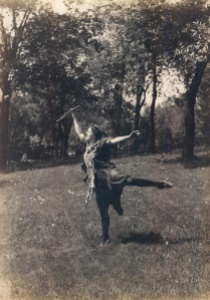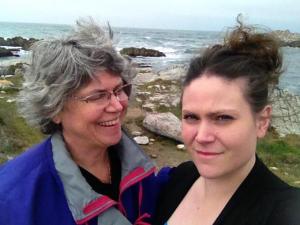 When I was young, Mom warned me watch what I shared with Dad. I no longer remember the details, but the implication was clear—my problems would add to Dad’s already demanding work life. He wasn’t strong enough to handle anything other than his own concerns.
When I was young, Mom warned me watch what I shared with Dad. I no longer remember the details, but the implication was clear—my problems would add to Dad’s already demanding work life. He wasn’t strong enough to handle anything other than his own concerns.
Somewhere along the line, that warning spilled over into many of my relationships with other men. Since my local inner circle of family and friends was predominantly white skinned, this precaution focused on white men specifically.
It is a strange contradiction that I am both an outspoken woman and one who is sometimes hesitant to speak openly with men. Not all men, and not all of the time, but the warning bell rings loudly when I get near an invisible line.
Howard and I married when we were twenty-two. My confidence that I was a liberated woman of the ‘70s didn’t silence the clang of Mom’s warning bell ringing in my head.
For conversations with any emotional charge, I worked diligently to find the perfect time—i.e. when Howard was well rested and in the midst of a calm day—when I assumed that he had the capacity to deal with my conversation. Unfortunately, if my sharing included the impact of something he’s said or done, too often he slipped into guilt or regret or shame. I’d scramble to reassure him, and the conversation I’d wanted would too often got derailed.
Over our forty years of marriage, I’ve learned how to speak up earlier and address the topic regardless of what emotions arise, but it was a bumpy learning process. In that process, I discovered that Howard (like my Dad) was indeed strong enough to meet me in conversation.
My learning was slower with other men. I’ve too often stepped out tentatively, lightly touching what I’d like to say, then gone silent if my point wasn’t quickly understood or listened to. I too readily questioned myself, especially if my thinking was nuanced and spiraled rather than linear.
I knew I wasn’t alone in this struggle as women talk to each other about this tendency. Recently, a group of my women friends were talking about who to include in a newly forming group, when one of them said, “Let’s keep gathering as just women, because a man would try to take over the group.”
All of us have had experiences that would confirm the wisdom of her suggestion. But we were also all related to men whom we loved—either as husbands or sons, fathers or friends. Is it true that there is little chance for equitable participation when men are present? Are we women incapable of showing up in ways that are powerful enough to shift the behavior without excluding or attacking the men? Was this also inevitable with the men we loved and respected?
Stepping out of patriarchy requires me to be in a different sort of partnership than my mother taught me or than my women friends imagined. While being clear about the ravages of patriarchy in our culture, I must make a choice about how I choose to be in my relationships with white men—the men close to me as well as men in the community.
When I am silent, whether because I don’t want to upset a man or because I feel intimidated, I am fully participating in patriarchy by behaving as if their voice is more important than mine. When I lash out, throwing my anger at generations of gender injustice at the man in front of me, I am also participating in patriarchy by stereotyping men and then attacking them as if they alone were the problem.
I don’t want to perpetuate any of these patterns interfering with equitable partnerships with men. As always, I must start with myself.
I want to take responsibility for how I am with men, taking a risk to speak respectfully and clearly when an interaction feels like “power-over” or sounds like “mansplaining.” I want to share what is happening to me: to articulate the impact of disrespectful behavior; to listen to what is behind his actions or words; to acknowledge his feelings if shame emerges, but to then return to our conversation. I must honor myself enough to insist that I am treated respectfully, and I must honor my relationship with the man enough to see if there is a possibility that we can find a way to relate that is outside of patriarchy.
You taught me many wonderful things, Mom, but your advice to me as a preschooler about relating to men doesn’t serve me or the men in my life. I’m sixty-two now, and I know better.









